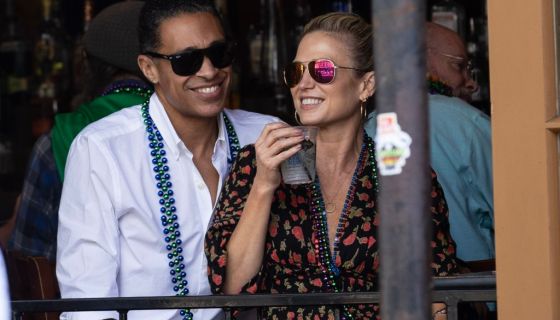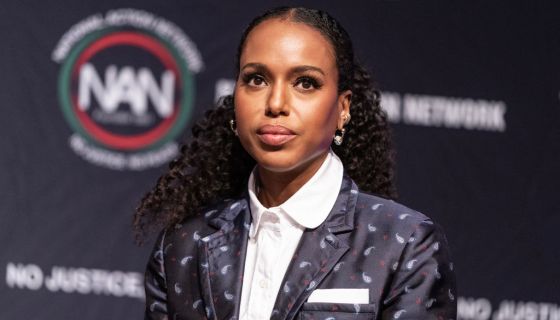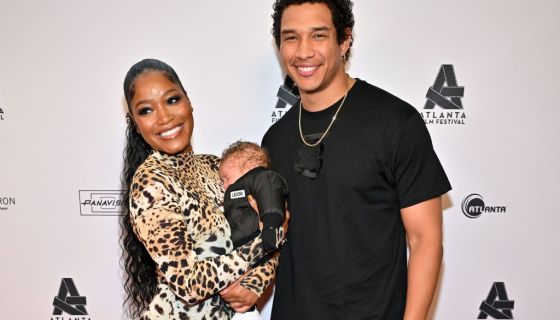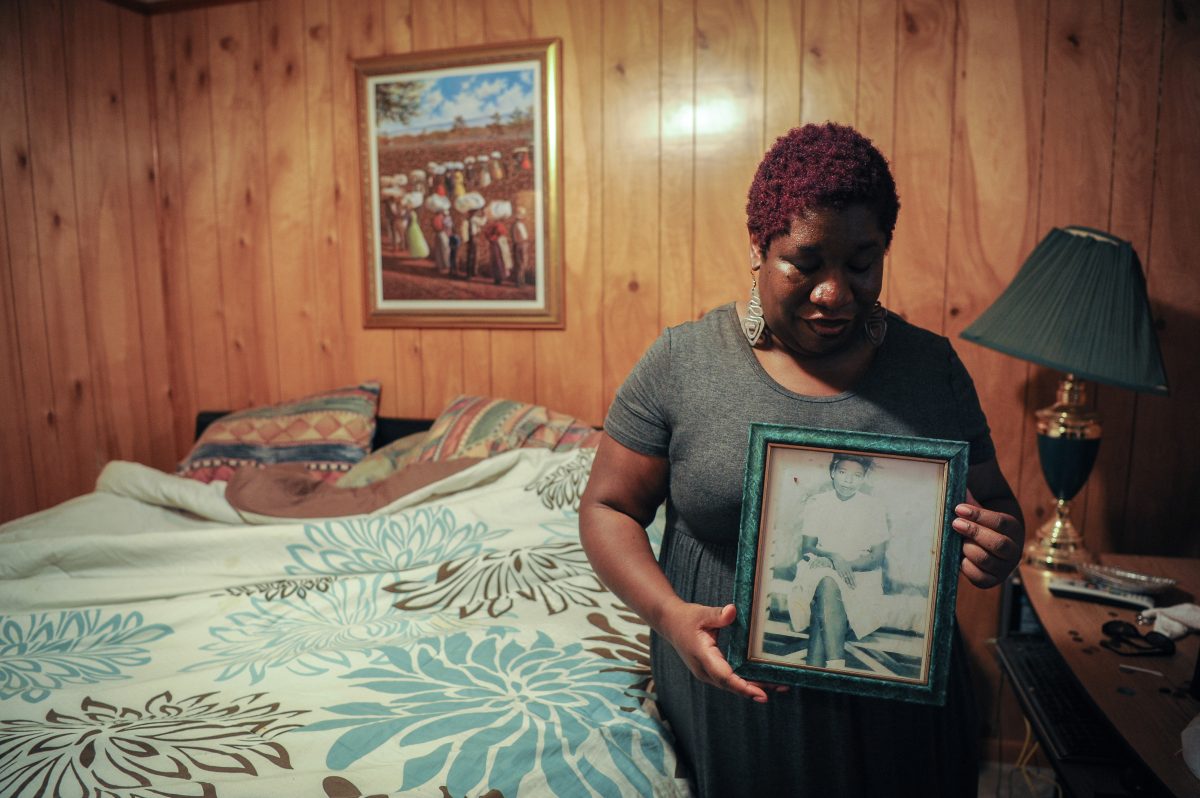
Source: Courtesy of Talameika Brice / Talameika Brice
Filmmaker and activist Talamieka Brice takes viewers on an emotional rollercoaster in her moving documentary film 5 A Mother’s Journey. The piece explores Brice’s upbringing in the deep south of Kilmichael, Mississippi, and her eventual transition to motherhood following a difficult miscarriage.
Brice welcomed her son Honor around the same time chaos and unrest erupted in Ferguson, Missouri, a by-product of the tragic police shooting of Michael Brown in 2014. What should have been a time of celebration instantly transformed into fear for Brice. How would she protect her son who would eventually grow up to become a Black man in America? How would she shield him from the racism and social injustice that continuously plagues people who look just like him?
Brice uses the documentary to confront some of those hard truths and fears. She also dives deep into her mother’s family history in the town of Duck Hill, a small town in Montgomery County, where the horrific lynching of Roosevelt Townes and Robert McDaniels occurred, just yards from her grandmother’s doorstep. History certainly has a way of repeating itself, but Brice uses her story to fight back against the narrative.
Towards the end of the film, the documentarian makes a compelling symbolic statement when she sets fire to a red “Make America Great Again Hat” while smoking a cigar. The image went viral across the internet during Trump’s presidency. It was her blatant stand against the decisive President and his polarizing rhetic. While it ruffled a few feathers, Brice knew it would get people talking. Perhaps that is what makes the star’s art so profound and why I was dying to learn more about her incredible knack for storytelling.
5 A Mother’s Journey was released in June 2021 and since then, it has exploded. Brice is gearing up to show the film at the Love Wins film festival in New York and the documentary was recently greenlit for global distribution.
I spoke with the powerful artist about how she worked up the courage to unpack her trauma, the difficulties of Black motherhood, and what fueled the anger behind her infamous MAGA hat photo.
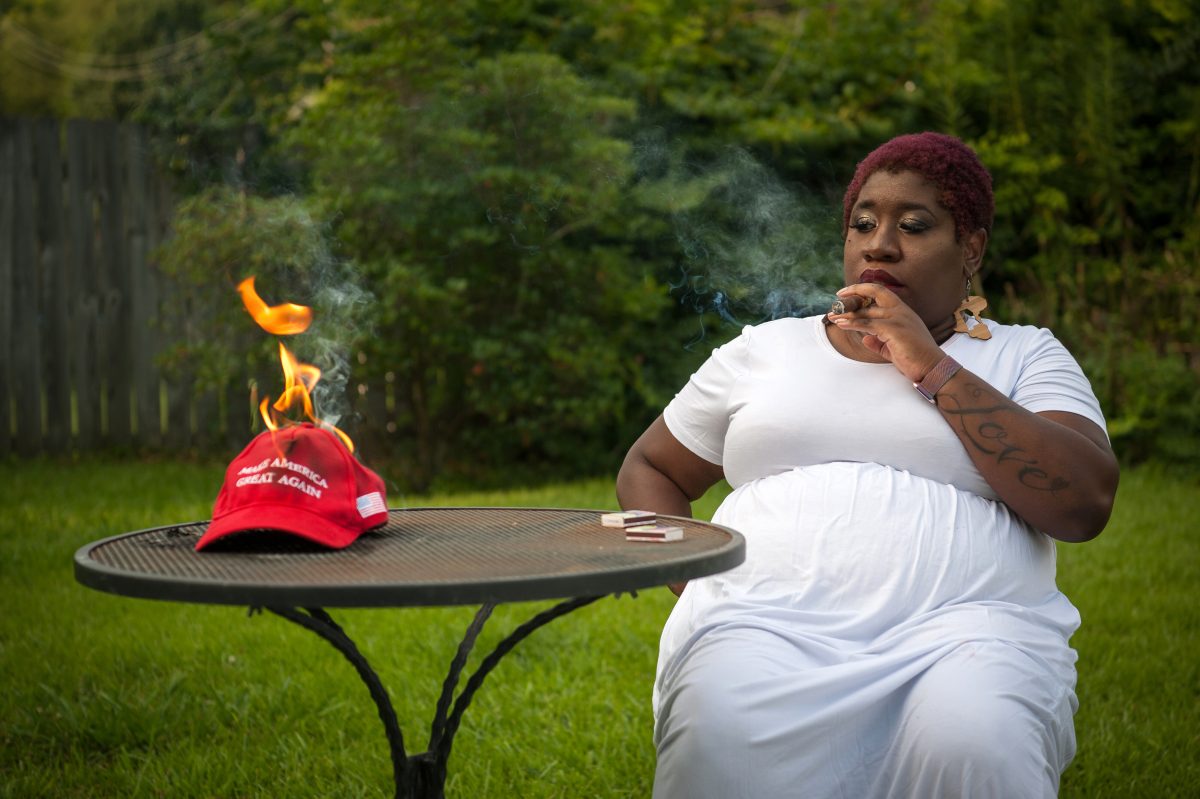
Source: Courtesy of Talameika Brice / Talameika Brice
How did you find your passion for storytelling and art?
Well, initially, it’s kind of funny. My passion for art started from my mom having the same battles with me as a kid you know, there are things that you have to get done. She wanted to get her housework done. You got to have something to keep them busy. So she would say, ‘draw something from Mama baby’. She’d sit me down with my paper and crayons and I would just draw for hours. When I was done, I would always bring it to her and she would give me positive feedback. I just loved it. That’s how it started. Growing up in a single-parent household, and in the boonies pretty much, you know, three miles from nowhere, I just kind of had to find my own voice and outlet. That’s when books became my friend because it was an escape. I learned the power of words, really early on because of words that were spoken to me, about me. I learned how to take those words and flip them and begin to get a bit of my power back. My journey started on a dirt road in Mississippi. Now I can’t believe it’s taken me to a film festival in New York, which is the pinnacle of any artist’s career.
One thing that you talk about in the documentary is the relationship that you had with your father before his passing. Do you feel like you were finally able to make amends before he transitioned?
Oh, man, that was. Of course, I feel like my story is always a part of everybody else’s story. It was an interesting journey, actually. So art is what led me to my husband. He’s the most amazing artist that I’ve ever met and I couldn’t beat him. So I joined him. When we first started dating, I did not have a great relationship with my father, and when we got so far along, he was like, ‘you got to fix that.’ He could see where it affected me in all areas of my life. My parents’ divorce was not a good situation. My father was abusive. So by the time I hit 19 or 20, our relationship was awful. And around about 20 to 23, he started to reach out more and I started to actually reciprocate but it went through the whole thing of getting all the bad out of telling him everything about how he missed my birthdays. We got to the point finally where he said, ‘I’m so sorry. What can I do now?’ And we just started building on from there. Before he left here, we had a good rapport. We said everything that needed to be said.
Honestly, my father taught me more in his death than he did in his life. His death was really sudden and unexpected. He found out he had cancer and by the time he found it, it was stage three. It was a very rare cancer, so there wasn’t a lot that he could do. My father was amazingly talented. He was very athletic, and he played the French horn. He did all these things, but he played small a lot. He ran from the good things inside of him a lot. I thought about my own life and things I was running from and places where I was playing small and I can see a lot of his decisions reflected in his mind. So yeah, we made a lot of peace. And I’m grateful for that.
You welcomed your son around the same time as Michael Brown’s death, which must have been so chaotic. What was going through your mind during that time?
I was absolutely pissed and terrified. My husband and I, we’ve been in our business full time for a couple of years. A lot of our clientele was predominantly white. There are things that you’re taught in business. You don’t talk about politics, you don’t talk about religion. And, of course, there were a ton of microaggressions and other things that we went through, but we just kind of stuffed them in and kept working. But after all of that, I had to go into the point of can my body even produce a child after a miscarriage to this child isn’t even 12-hours-old? And oh, yeah, he was born in America. He’s gonna grow into a black man. I was absolutely pissed.
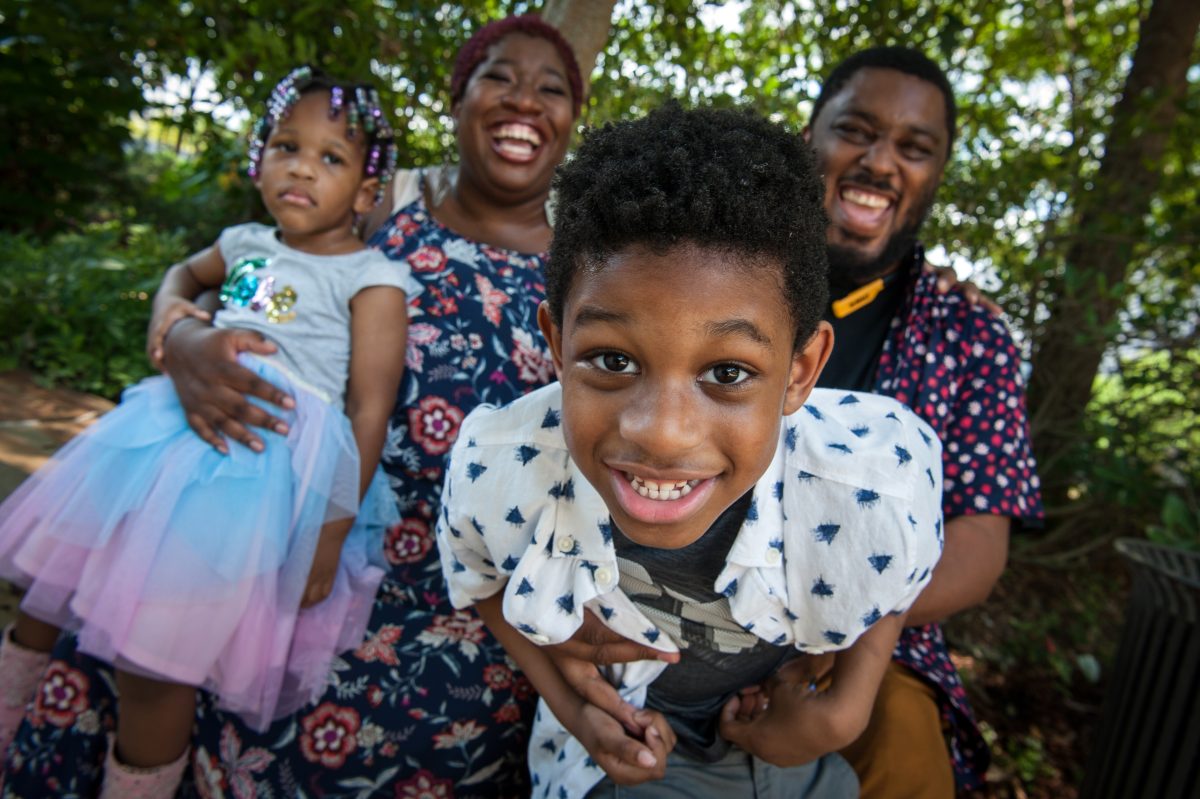
Source: Courtesy of Talameika Brice / Talameika Brice
A friend of mine had a great analogy. She said when you give birth and they bring you your baby, you also get a set of claws and teeth, and you become this other thing. This whole different type of species that you never knew was there. That was my reaction. How do I keep him safe? My art and my activism are an extension of my mothering.
One thing that I often think about when that time does come for me to have children, is how do I as a mother go about explaining some of the devastations that go on in the world?
One thing I had to realize honestly is kids are a lot more resilient than we give them credit for. Honor at a young age had a fascination with Nerf guns and water guns. I did not want him to have them at all. It was a battle between me and his dad. And finally, his dad brought him a Nerf Gun. So the rule was that he could play with the Nerf guns but he could never take them outside of the house. One day I found that he had taken it outside. We were in the front yard but it was like an orange Nerf Gun. I said, ‘Hey, bud you know mommy’s rule about not taking your Nerf gun outside of the house?’ He said, ‘Yeah, mom, but it’s orange. It doesn’t look real.’ He was about four. Then I pulled up a picture of Tamir Rice. And I said, ‘You see this little boy here? He had a gun that was a toy gun, and someone thought it was real. And they shot him and he died.’ And he said, Oh, so that’s why Mommy doesn’t want you to have these guns and he said, Okay, we’ll can I play with my lightsaber instead? I was like, Yeah, that’s a better choice. Then he said, ‘Mommy, can you hold me into this worried feeling goes away?’ and you know, I did.
It’s a struggle. Like him trying to do virtual school, while the January 6 Insurrection was going on. His teacher, who was white, still wanted him to say the Pledge of Allegiance after Breanna Taylor. I thought to myself, No! You are not saying that. You are not pledging any allegiance to the flag. You will not dupe my son like you have duped me. I don’t want him to know those words.
Speaking of the Insurrection…you were sparking so much inspiration and controversy online after you posted that infamous MAGA hat-burning photo before Trump’s presidency. What sparked the art?
Anger. As Black women were always portrayed as angry black women. But, if anybody else on Earth got a reason to be mad, it’s us. So I took the mantle. I mean, Trump was and is an unapologetic racist, so fuck that, like all of that. I was thinking about how to channel it because you know he was still the most powerful man in the world at that moment, but I’ve dealt with racism. I live in Mississippi. When you really get in their face they always back down. The only thing that they have to protect them is their whiteness. You take that away from them and look them in their face and they get real small.
I thought about those hats, and how they pissed me off. And I was like, I’m gonna burn a hat. I knew I wanted that to be the end of the movie. I usually come up with the end and the beginning and then work my way through all the pieces. They just kind of come into place. I smoked cigars for years off and on but I’ve never done it publicly because people knew me. I almost didn’t do it because I hadn’t told my mom. You know, I’m 40 years old but I still got a black mama.
Do you know if the photo made it back to Trump or any of his affiliates?
I have no idea but I’ve seen it in different places. I think there was a wall in California right before the election. They had a “We Hate Trump” wall or something of that nature. Someone printed that photo out and put it on there. A friend of mine named Jessica was teaching in Oakland and she was sitting there talking to her friend and her friend’s screensaver was that photo. So she called me and said, ‘Hey, can I video chat?’ And her friend, who was a black woman, was in tears. She said ‘oh my god, I can’t believe it’s you. This photo has given me so much hope.’
In the documentary, you dive into the tragic lynching of Roosevelt Towns and Robert McDaniels in Mississippi. For clarity, Were you related to them both?
I am not. And what’s funny is I actually saw Al White yesterday a few days ago. Al is now the mayor of Duck Hill. We did some work with the Mississippi Department of Archives and History and we are currently working on getting those two men their historical markers to acknowledge them and I’m working with another metal artist, Stephanie Dwyer, who has stuff out of the Smithsonian. We’re going to put some bottle tree leaves around it, and have some local students paint it. I’m doing a short documentary on that as well.
There’s just so much that I took from this film. Many of the themes I’m trying to confront in my own life as well, in terms of breaking generational curses and letting go of personal roadblocks. What is one thing that you want your viewers to learn from watching this piece?
I think a lot of times we can forget our power. Regardless of who we are, we all have a set of power in the community, with the people that we are around, there’s power within our family. And if you are the type that has been bullied or been a bully, I’ve been on both sides of those spectrums, it’s all about power and tapping into who you are and not being afraid.
I told my friend, I was really happy I went to my nightmares and made art. I still continue doing that with other documentaries that I’m working on at the same time. It’s challenging work, but at the same time for me to hear you say how it affected you, lets me know that it was worth it. Just investing in your power and your worth, and moving the needle for people that can’t. People will say something to me, that they wouldn’t say to someone who’s queer because I’m straight. So it’s my responsibility while in those places to push back. There’s all this power that we have within these places. So what I hope people take away is to tap into that power because I think when we feel like we’re powerless, that’s what leads to white supremacy and terrorist attacks. We can hate the other without looking at the power we ourselves own. I just want folks to be better humans and advocate for each other.
I hear you’re working on a documentary about reproductive justice next?
Man! Let me tell you. I’ve been working on this one since March. It has evolved into a docu-series because there are so many layers. You mentioned Ferguson, this one actually, I went to Ferguson and stood on the ground where Mike Brown passed. I also went to Pensacola which is the place where the first abortion provider was murdered in the 90s. I had a chance to talk to his stepsister who now is a fierce advocate and volunteer for the abortion clinic.
It’s so loaded and you know everything that’s going on now with Dobbs in the state of Mississippi. It’s just really dealing with the layers of how this all is going to affect Black women. While I’m in New York, I will be doing some filming as well about the history of how this thing came to be, and you can’t talk about it without talking about black midwives and how they were pretty much pushed out of the system by white men and these new rules that they come up with all the time. It’s got layers.
Wow, I can’t wait to see the film. This really ties in to what’s happening currently with the maternal health crisis among Black women. So many horror stories have come out of Black mothers going in to give birth and dying in the process.
That’s another story. That’s honestly, why I only have two children. I nearly died giving birth to both kids. And it’s one of those things like you know, college-educated narratives, It did not matter. After my daughter, my husband said ‘let’s not do this again.’
RELATED CONTENT: ‘Ain’t That A Mother’: Author Adiba Nelson Talks Motherhood, Representation And Book Cover Reveal

